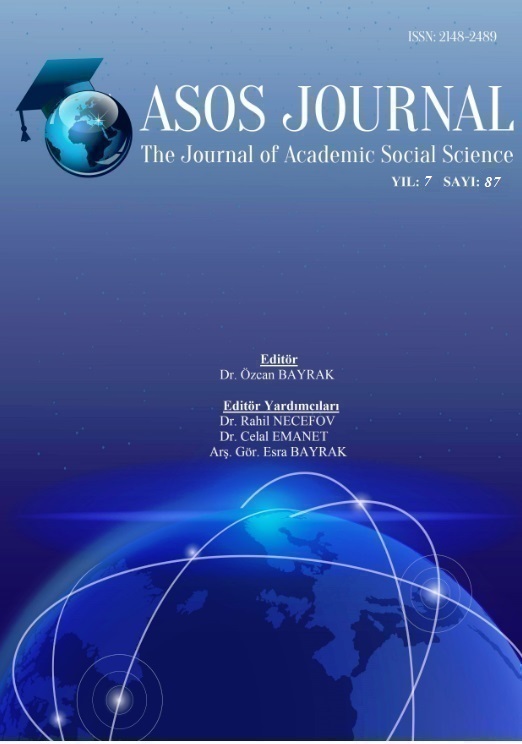İBN MİSKEVEYH VE KINALIZÂDE ALİ ÇELEBİ’DE ADÂLET DÜŞÜNCESİ: SİYASİ BİR KAVRAM OLARAK ADÂLETİN SERENCÂMI
Author :
Abstract
Bu makalede klasik ahlâk literatürünü sistemleştirdiği kabul edilen İbn Miskeveyh’den bir Osmanlı müellifi olan Kınalızâde Ali Çelebi’ye kadar geçen sürede adalet kavramının özellikle siyasi düşüncede ne gibi dönüşümler geçirdiğini ele aldık. Literatürün sürekliliğini takip ederken, zikrettiğimiz müelliflerin eserlerini mukayese ettik. Ayrıca tehzib literatüründe adı geçen ve ahlâk literatürüne etkileri olan filozofların metinlerini de inceleyerek geniş bir bakış açısı sunmaya çalıştık. Son olarak toplumun dinî anlayışının metinlere etki yapmasının yanı sıra sosyal ve kültürel gerçekliğin de kendi döneminde yazılan metinleri ne oranda etkilediğini irdeledik. Bu bağlamda Osmanlı düşünce dünyasının İbn Miskeveyh sonrası gelişen ahlâk felsefesine etkilerini, Kınalızâde’nin Ahlâk-ı Alâi adlı metnini inceleyerek ortaya çıkarmaya çalıştık.
Keywords
Abstract
In this article, we discussed how concept of justice underwent transformations, particulary in political thought, from İbn Miskeveyh, who is considered to systematize classical moral literature, of Kınalızâde Ali Çelebi, who is an Ottoman philosopher. While following the continuity of the literature we compared the works of the philosopher that we mentioned. We also tried to present a broad perspective by examining the text of philosophers who are mentioned in the literature of Tahzibul Akhlaq and who have effects on the literature of ethics. Lastly, we examined the effect of religious understanding of the society on the texts and the extent to which social and cultural reality affect the texts written in their period. In this context, we tried to reveal the effects of Ottoman thought world on the moral philosophy developed after Ibn Miskeveyh by examining the text of Ahlâk-ı Alâi of Kınalızâde.





